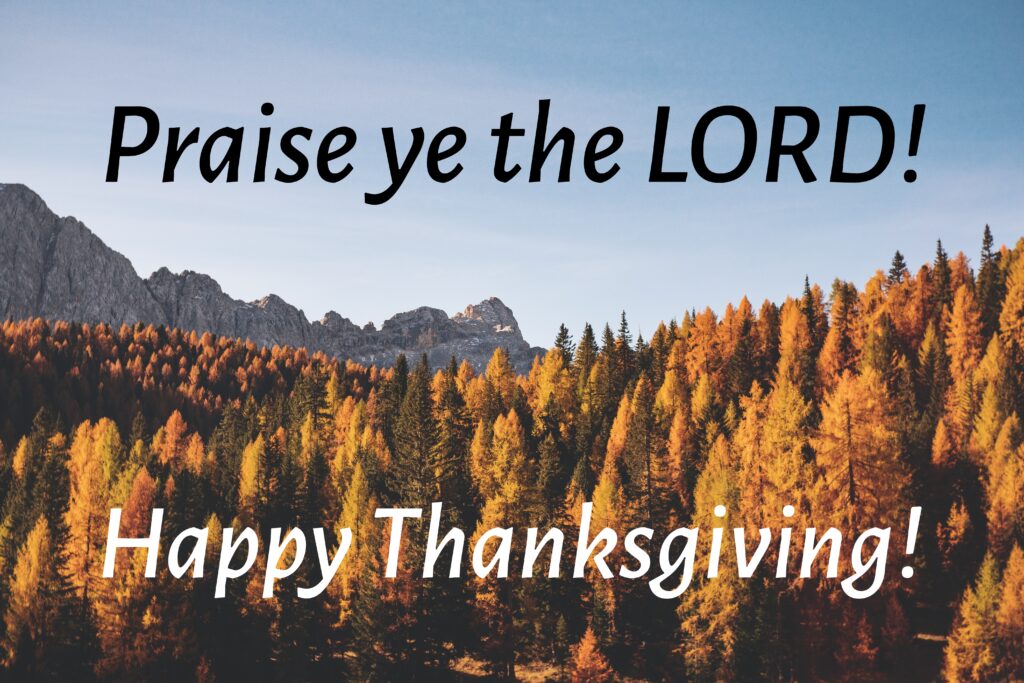Psalm 148

Happy Thanksgiving!
Thanks for stoping by on this holiday!
On a day like today, we need to be clear on a couple of key things:
- We have a lot to praise God for! (See previous posts for some of these.)
- We are a part of the people that this praise is to come from.
For this second point, we’re going to look at Psalm 148. This Psalm answers one of the most fundamental questions about praise: Who should do the praising?
Who Should Praise?
A quick read through this psalm would yield a pretty long list of people and things that are to praise God. Including angels, the sun, moon, stars, oceans, elements of weather, geographical features, trees, animals, and people from every age and station of life are to praise the LORD.
To boil this down into one simple application: You are to praise the LORD.
The fact that nature Praises God should be a challenge to mankind.
“The heavens declare the glory of God; And the firmament sheweth his handywork.” Psalm 19:1
The heavens and earth declare God’s glory and point to His character. Why shouldn’t I? Why shouldn’t you?
Why Should we Praise?
This psalm, like many others, gives a small sample of things we can praise God for. These are seen in two parts
God’s Act of Creation
5 Let them praise the name of the Lord: For he commanded, and they were created. 6 He hath also stablished them for ever and ever: He hath made a decree which shall not pass. Psalm 148:5–6
God’s command was all that was needed to create all that we see in this world. What a Mighty God!
God’s Name and Glory
13 Let them praise the name of the Lord: For his name alone is excellent; His glory is above the earth and heaven. 14 He also exalteth the horn of his people, The praise of all his saints; Even of the children of Israel, a people near unto him. Praise ye the Lord. Psalm 148:13–14
The more we know about God’s name and glory the more natural praise becomes. His name and glory are unmatched, and yet He exalts His people (specifically Israel in this context.)
Your Turn
“Praise ye the LORD.”
This statement, this command begins and ends Psalm 148.
Take it to heart. If the rocks and trees, the birds and flowers are praising God right now can’t you?
“Praise ye the LORD.”
